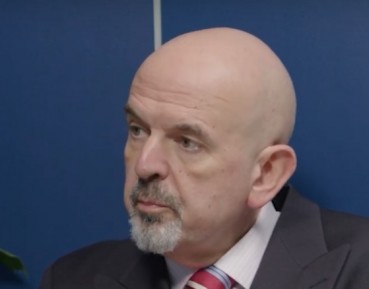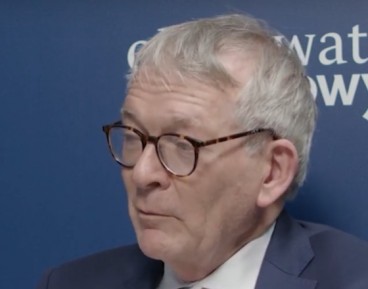Have Russian leaders underestimated a rival again?
Category: Macroeconomics
Obserwator Finansowy: Reconstruction of Ukraine is the crux of the matter. But is it conceivable at all without final resolution to the conflict with Russia? Is it possible at all to reach the state of final resolution of the conflict taking into account the Russia’s potential?
Barry Eichengreen: It really matters what you mean by “final resolution”. Ukraine needs security guarantees and it needs to be confident. Investors need to be confident, that it is secure from further attacks by Russia. But is that a “final resolution”? Does it mean that friendly relations or civil relations between Russia and Ukraine will be restored or that all territorial disputes will be resolved? Not necessarily. I think the latter is a very high bar and will be very challenging to achieve, but security for Ukraine – where Ukraine’s defences are solid and Russia is deterred from further aggression – yes, I think that is possible and that is sufficient for economic reconstruction and recovery.
Obserwator Finansowy: But what should happen to secure such a state? I mean, what should be done or what kind of changes should happen in Russia to create an opportunity to re-establish friendly relationship between Russia and Ukraine?
Barry Eichengreen: I should remind you that I’m an economist and not a political scientist or military strategist. So I would say that Ukraine needs solid defence and a strong military and that presupposes good economy and it needs security guarantees from its allies. So the European Union and the United States need to assure Ukraine that they will be its allies for the long term and not only this year, or for the long term and not only until the next presidential election in the United States.
Obserwator Finansowy: To reconstruct Ukraine fully we need integrated Europe and integrated international support to re-establish good economic conditions in Ukraine. However, I would like to mention Nouriel Roubini, nicknamed Doctor Doom because of the fact that he predicted the financial crisis 15 years ago. He said that we could expect a long and deep recession, global recession. How may it affect chances of Ukraine to get reconstructed in a few years?
Barry Eichengreen: Nouriel is a friend and a colleague and he was also my student for a short period in 1980s, when I was a young professor and he was an even younger graduate student. He’s made a great carrier for himself doing research and also playing the role of Doctor Doom and predicting that a terrible crisis is about to happen. We have had a series of severe crises so he has been right several times and he has also predicted crises that haven’t happened. So I think the “doom and gloom” can be overdone as well. There are a lot of positives affecting the global economy from the rise of emerging markets to the development all around us of new technologies. And I think if we can address the climate change challenge, we can address our financial challenges and we can address our political challenges domestically and internationally, there’s hope for a better future. So I have a lot of respect for Nouriel. I’m not in his “doom and gloom” camp, my baseline case would be ─ if we now have a recession in the United States, it will be relatively short and mild, and we can still hope that a recession in Europe, which has started in Germany, will remain relatively short and mild.
Obserwator Finansowy: During today’s presentations you have showed a very impressive account of post-war West German recovery, and I wanted to ask you whether ordoliberalism ideas had any good impact on that period. I mean, did order of liberalism have a wide impact on Wirtschaftswunder phenomenon in Germany?
Barry Eichengreen: I didn’t use the term “ordoliberalism” in my talk because I think these “isms” mean different things to different people, not only “ordoliberalism” but “socialism”, “communism”, whatever. They have different aspects and they mean different things to different people. What Germany benefited from, especially in the third quarter of the 20th century when it had its economic miracle and recovered so successfully from World War II was a mix of market and government. It had a social market economy so it needed people, influential people who were pointing to the advantages of the market. At the same time, other people were pointing to the advantages of coordinating economic activity through the government. So, as a result of these different ideologies, if you will, post-war West Germany got a mixed economy that involved government and market and it was served very well by that mix.
Obserwator Finansowy: Thank you very much.
Barry Eichengreen: Thank you.


